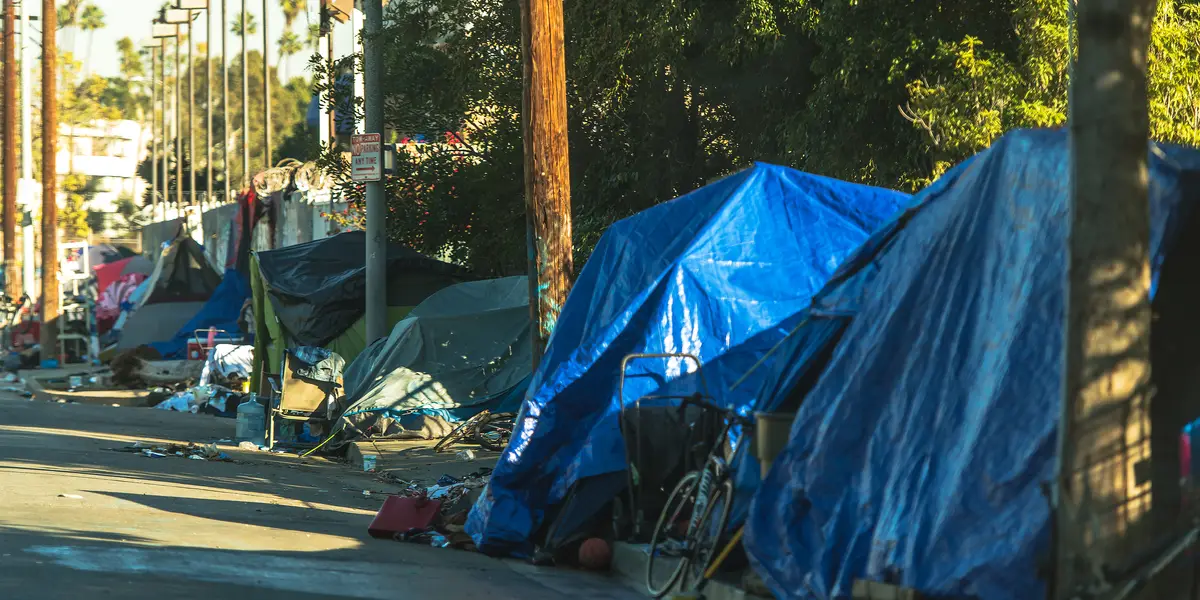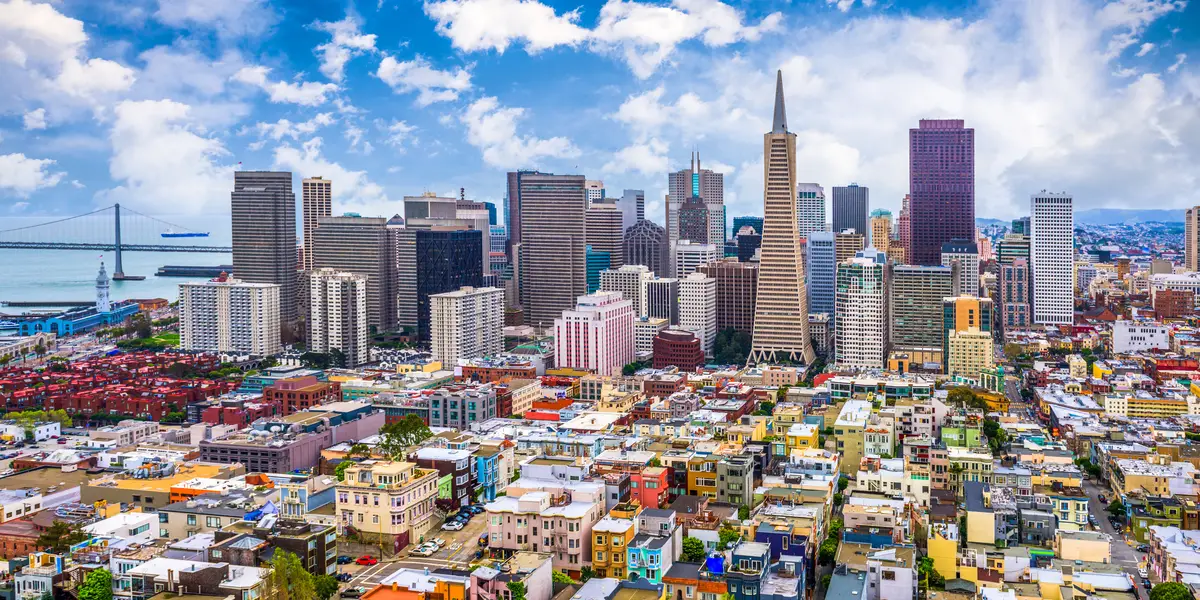It’s an ambitious goal: delivering 20,000 units of affordable housing in the next three years in Atlanta, a city that’s widely seen as leaving behind its low- and moderate-income residents.
But it’s also a crucial one, not just because the need is so great, but because of what’s at stake.
Atlanta has enjoyed explosive growth over the past few decades, but its success has arguably come at a cost. A city often referred to as the “Black Mecca,” which played a crucial role in the civil rights movement and thrived with a majority-minority population, may be at risk of losing its heart and soul.
From 2010 to 2020, Atlanta’s Black population declined to 47%, even as the city’s overall population grew. Wealthier white people moving in and forcing lower-income people of color out to the suburbs has earned Atlanta the distinction of having the highest income inequality among large U.S. cities.
Atlanta also became Exhibit A for the worst practices of the subprime mortgage crisis: stripping homes away from Black families through predatory lending practices and foreclosures, only to have them scooped up by out-of-town investors and rented back out at steep prices.
That’s why affordable housing is something far greater than a nice-to-have. It’s nothing less than a tool of equity. Attainable, secure housing lays a foundation that allows people to thrive and increase their economic mobility.
“Equity” is also a form of investment, and affordable housing is very much about ensuring that everyone who needs it has a stake in the city. All Atlantans — from cashiers to teachers to tech executives — deserve to share in our continued prosperity.
The Need, by the Numbers
Despite the gentrification that continues to drive lower-income people of color out of the city, the metro area keeps pulling in new residents. Atlanta saw an influx of over 717,000 people in the first decade of this century, with 148,000 more arriving in just the two years before the pandemic hit.
Meanwhile, rents jumped 23%, to an average of $1,419 a month, in the 2017-2021 period, even as the average hourly wage in the city grew less than 10% during that time.
As of 2020, even before the pandemic hit, nearly half of all Atlanta households making $50,000 or less were considered “cost-burdened,” meaning they spend more than 30% of their incomes on housing.
Still, it’s important to emphasize: This housing crisis is not about numbers. It’s about people- the individuals and families who make up communities.
Understand and Acknowledge the Need
The enormity of the housing issue means it won’t be enough for Atlanta to simply check the normal boxes. The 20,000 new affordable homes targeted by the mayor are critical, but so too is the process.
It’s crucial to get as much buy-in as possible from the most important stakeholders and to make sure everyone communicates — meaning that they have a chance to speak, but also that they listen.
Identifying who should benefit from affordable housing, rather than simply assuming we all agree on that point, is a good place to start. It should include the teachers and cashiers we discussed earlier, but Atlanta also needs a plan for residents who are currently unhoused. The tech executives who can afford anything they want also benefit from having an equitable housing market — one that houses lower-paid workers in their companies, the surrounding service industries, and the municipal government.
It will also be critical to consider where the housing will go. There’s a wealth of data on Atlanta’s neighborhoods: income levels, racial and ethnic backgrounds, the mix of commercial vs. residential properties, and so on.
But that only gets us so far. We also need to hear from the people who most need affordable housing. What price ranges are actually “affordable” for them? Which proximate services would be most beneficial, such as schools, public transportation, grocery stores, or healthcare centers?
Current residents should also be engaged to educate on the economic benefits and stem any NIMBY-ism.
Deploy City Resources
Atlanta is right now struggling mightily with serious disagreements over how to use its resources, and it will be critical to make sure affordable housing goals aren’t stymied by the same conflicts.
Developers need to understand the areas where they’re building. Do the needs and desires of residents align with construction plans? That’s particularly important if the developments will be mixed-use or mixed-income.
What’s more, just as many of the developments are public-private partnerships, so too does this journey need to have buy-in, consensus, and perhaps even compromise from both public and private participants in this process.
Developers may need to make do with fewer market-rate rental units than they’d originally penciled in, or a lengthier timeframe for listening to all stakeholders. But politicians, too, may need to re-examine the city’s priorities and resources.
Providing affordable housing may be challenging, but it pays dividends in the form of a stable workforce, less need for emergency government services, and a stronger housing market — property values, tax base, and more. We are at a crucial moment, with all stakeholders coalescing to make this happen. If municipal leaders can boldly communicate the need to get it done and lead collaboratively with private partners to get it done right, Atlanta can be a model for housing equity.
Robin Reese is a Partner on Ichor’s Engagement team and is based in the Atlanta office. She has a deep background of experience with communications for mission-driven organizations.




